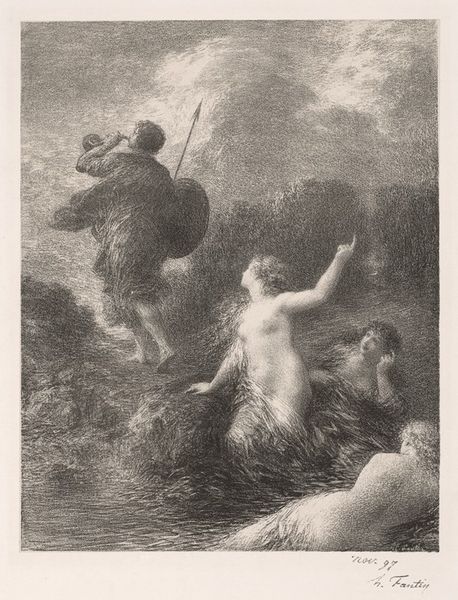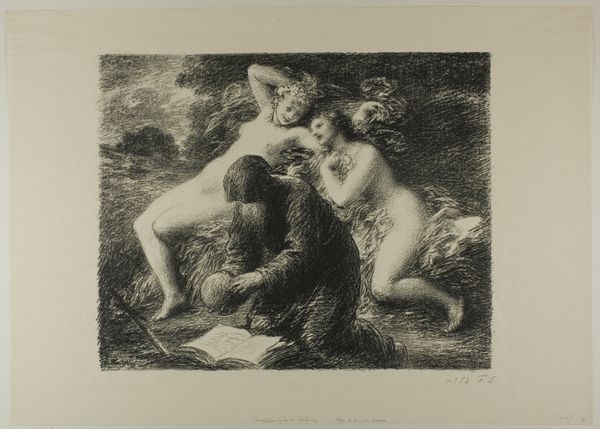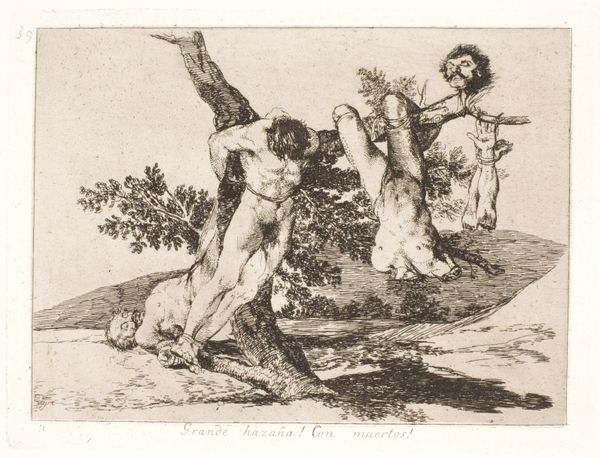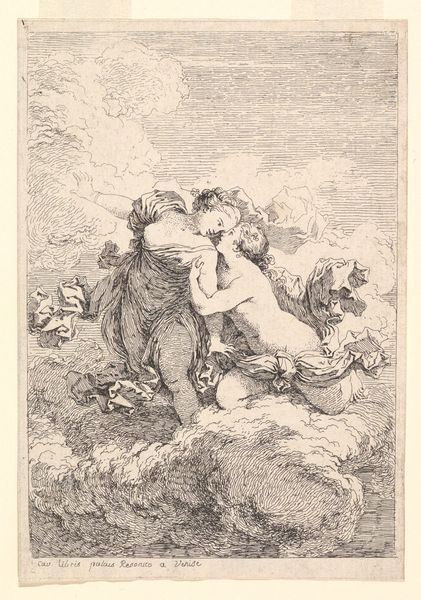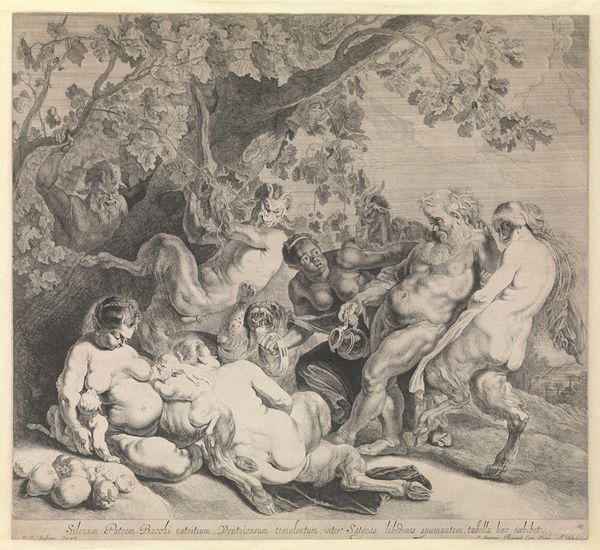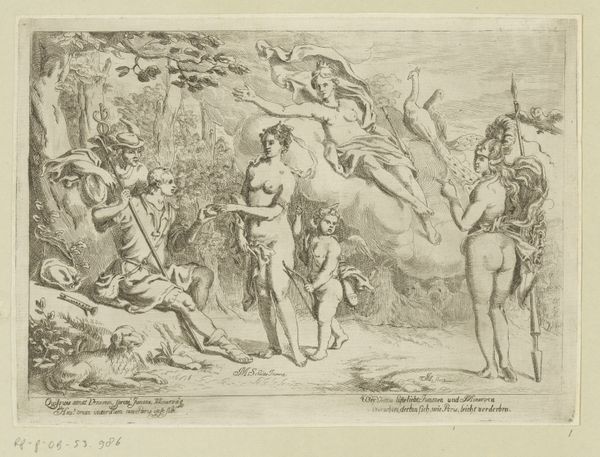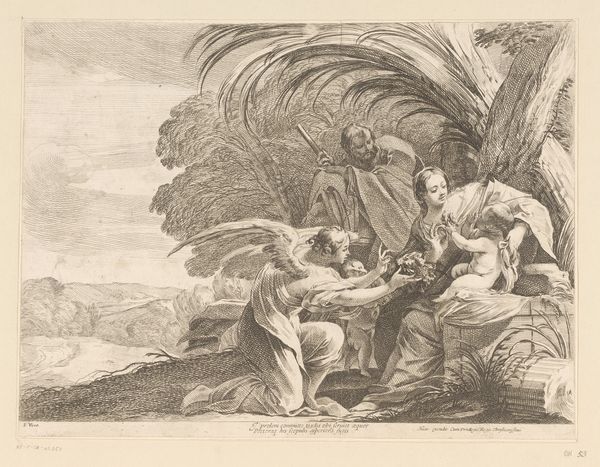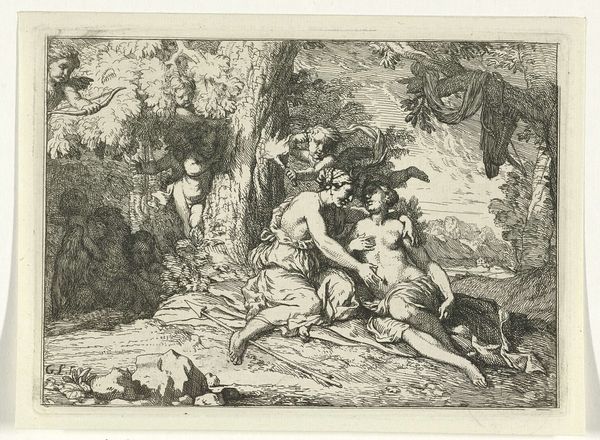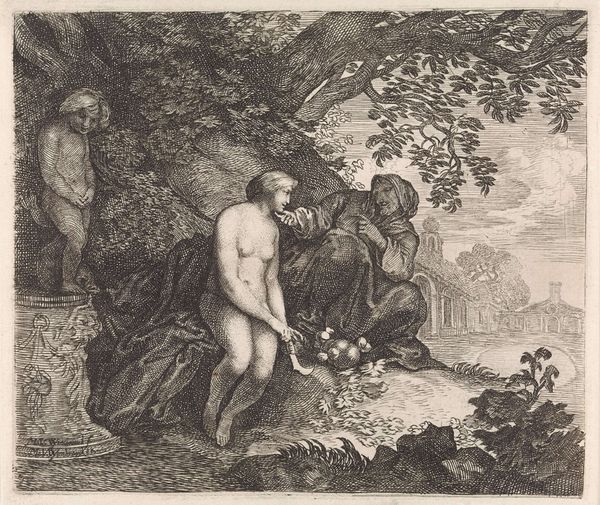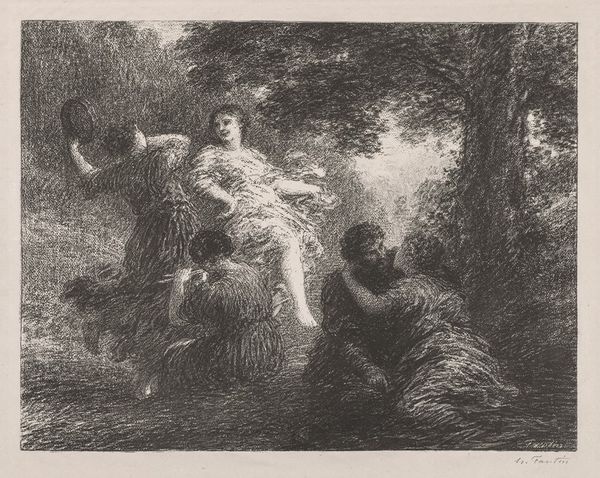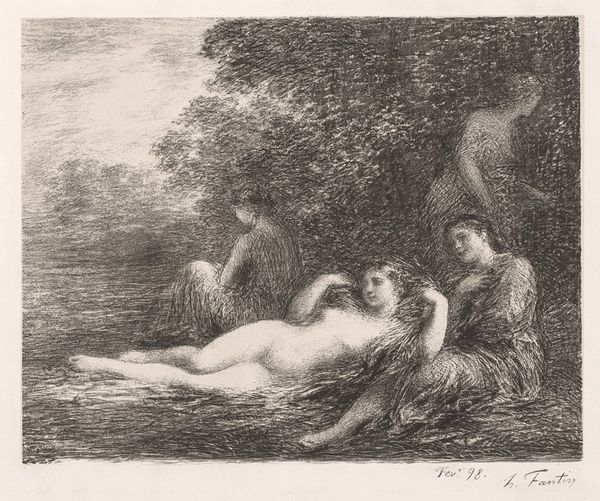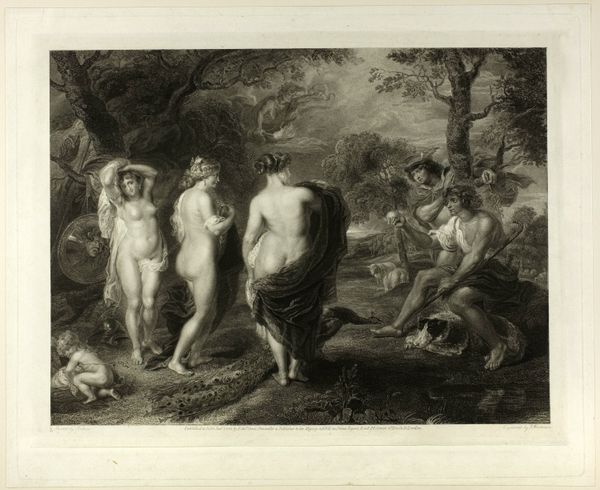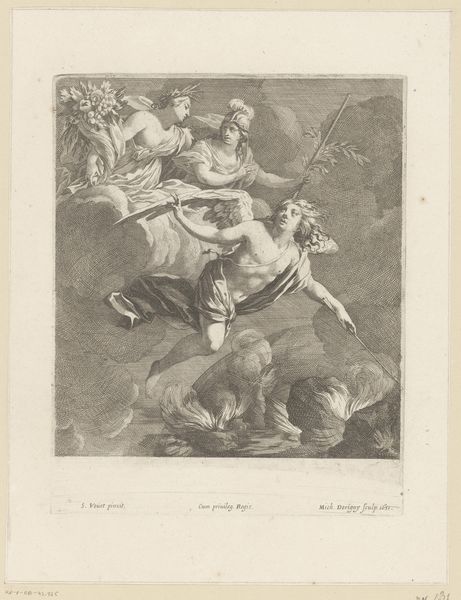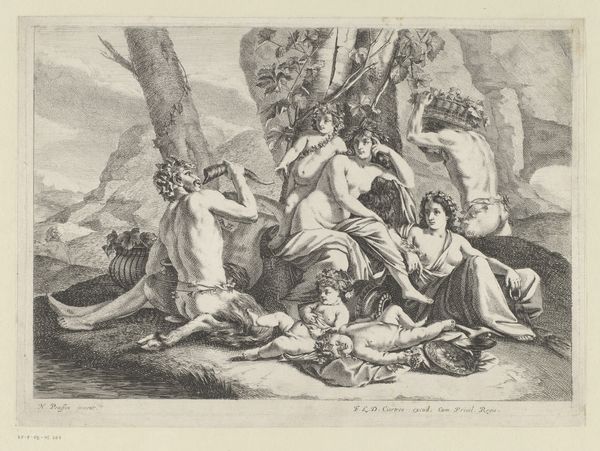
print, etching, engraving
# print
#
etching
#
landscape
#
charcoal drawing
#
figuration
#
charcoal art
#
pencil drawing
#
symbolism
#
history-painting
#
nude
#
engraving
Copyright: Public Domain: Artvee
Curator: This etching, titled "Venusberg," was created by Henri Fantin-Latour in 1876. The print offers us a glimpse into a darkly romantic landscape. What do you see when you first look at it? Editor: A study in contrasts, immediately. The foreground feels dense and almost claustrophobic, while hints of a lighter landscape are visible in the background. There's a sense of yearning, or perhaps a cautionary tale unfolding. Curator: The etching visualizes a scene from Richard Wagner's opera "Tannhäuser," referencing the mythical realm of Venus, a place of sensual indulgence. We see the knight Tannhäuser torn between earthly desires and spiritual longing. Considering that Wagner's operas were themselves at the center of considerable social and political debate during the period, do you think Latour may have intentionally put Tannhauser into a troubled and precarious position, Editor: Absolutely, this image resonates beyond its Wagnerian roots; I think Latour stages a tension between hedonism and restraint, which, in the 1870s, touches on gender roles, male artistic genius and temptation, and anxieties around bourgeois respectability versus unconventional desire. The Venus figure stands central but is nearly formless, as if she might represent everything that remains unrepresentable. Curator: Yes, the almost ghostly central figure holds considerable power within the scene and its historical narrative. Considering Fantin-Latour's circle, with figures like Baudelaire and Manet, it's fair to interpret the image as both inspired by and challenging the accepted aesthetics and moralities of the era. Editor: The dark landscape feels psychologically charged and heavy, even morbid. The image reflects more broadly on cultural preoccupations around sexuality, morality, and the potential dangers of unfettered passion. I wonder, in what ways this vision speaks to the anxieties present in 19th-century France. Curator: Indeed, Fantin-Latour here captures not only a dramatic moment in Wagner's opera, but a broader social mood. He presents the complexities inherent in the cultural obsession with mythological themes and, through etching, offers a striking, atmospheric commentary. Editor: It's an interesting paradox that Fantin-Latour's image, steeped in a very particular historical context, continues to resonate today as a visual metaphor for our own internal struggles and collective anxieties surrounding pleasure and freedom.
Comments
No comments
Be the first to comment and join the conversation on the ultimate creative platform.
